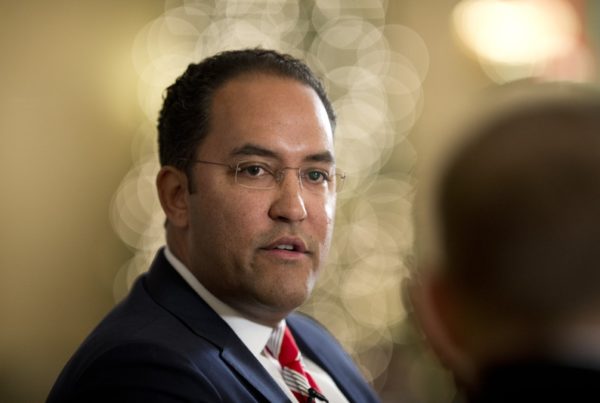Dozens of school districts across Texas, including Houston, are currently on track to face tough, new sanctions if their elected officials don’t improve chronically failing schools by next August.
The Texas Education Commissioner could replace the school boards in all those districts, following a tough “no excuses” law passed by state lawmakers in 2015.
“It changes our focus from the level of the campus to the absolute top — where I think needs to be — sort of school boards and superintendents,” says Texas Education Commissioner Mike Morath at a hearing last August.
The option to install a board of managers has been available to the commissioner before. But it’s usually reserved for districts with widespread academic struggles as well as financial mismanagement.
This law, known as House Bill 1842, allows the commissioner to appoint outside managers if a district has even one campus that chronically fails the state’s standards for five or more years. Then, the district’s elected officials could face the consequences — and lose their jobs.
Houston Public Media analyzed the data from the Texas Education Agency and found more than forty districts that could see an outside board of managers as early as next year, if their school ratings don’t change by 2018.
On the list: the Austin, Dallas, Fort Worth, Houston and San Antonio districts.
“The stakes are going to be very high this year. If districts don’t begin to see some improvements, then some of those more difficult choices under the law are going to start to come into play,” says David Thompson, an attorney with the firm Thompson and Horton.
The Houston Independent School District could end up becoming the poster child for the law’s sanctions and strict timeline. It’s the biggest district in Texas, with more than 200,000 students and a $2 billion budget. Plus, it has the most schools — more than a dozen — that have missed the state’s standards for three or more years. In Texas education parlance, they’re labeled “improvement required.”
“While I think it’s unfair, it’s also incumbent upon us to do our jobs. And one school with multiple years of (improvement required) is too many,” says HISD trustee Rhonda Skillern-Jones.
She represents Kashmere High School, which has failed state standards for the last seven years. That’s the worst record of any campus in the state. Several other campuses in her district in northeast Houston are struggling to meet state standards as well.
Other HISD schools that have persistently missed state standards: Wheatley and Worhing high schools.
“And so I think it’s critical that we move the needle for these kids. But more importantly, for the kids. Not because we need to stay compliant with the law,” Skillern-Jones adds.
Some intermediate steps spelled out in the law have already happened, primarily two-year turnaround plans for the struggling campuses.
But the clock is ticking for districts to improve all the chronically failing campuses — or face the consequences.
“This bill is designed on a fundamental basis of what gets measured, gets fixed,” says state Sen. Paul Bettencourt, R-Houston.
“You know, is it going to be eight years? Is it going to be 12 years? You just can’t look the other way anymore.”
And now, Texas education officials are watching closely.
“I don’t think we can sit back and kind of arm-chair quarterback and complain about under-performing teachers at an individual campus when, in fact, it’s the leadership at the district level that sets the stages whether they can succeed or not,” Morath told Bettencourt and other senators last year.
Morath previously was a school board trustee himself in Dallas, until Gov. Greg Abbott named him the state’s education chief.
“I used to quip when I was on the school board before that, you know, there are not enough layers in the bureaucracy to protect teachers from our foolishness,” Morath says.
Across Texas, local voters elect their board of trustees, who then hire the superintendent, guide policy and set the budget for their local public schools.
That’s why some view the risk of an outside board of managers as an extreme option.
Thompson describes it as an “almost nuclear option of the governance of an entire community’s schools.”
“If you think about it, you’re not just telling the school board, We don’t think you’re doing a good job. You’re literally telling a community, We don’t think you, as a community, are capable of governing yourselves,” he explains.
The Texas Education Agency declined to comment for this story, saying it has to wait until the agency officially releases 2017 school ratings later this month.
But Thompson says that he’s concerned Texas is ratcheting up sanctions while it shrinks financial support.
“Setting standards or requirements and then not providing the means to meet those requirements isn’t accountability. It is simply punishment,” he says. “And there is a lot of concern among school districts that, to use an old Texas phrase: the state is all hat and no cattle.”
The commissioner could choose another option. Instead of suspending elected officials, he could close low-performing campuses.
In Houston, HISD trustee Skillern-Jones says she would rather lose her job than close a school like Kashmere High.
“Put in a board of managers and that affects nine board members’ lives,” she says. “You close the school down, especially one like Kashmere, you affect 500 families and kids. And I think that’s not the correct action to take.”
Because, she says, when schools close, the community suffers and poverty snowballs even more.
School districts like Houston will know more where they stand after the state releases the 2017 school- accountability ratings later this month.
Some districts could improve and escape the risk of a state takeover.

















